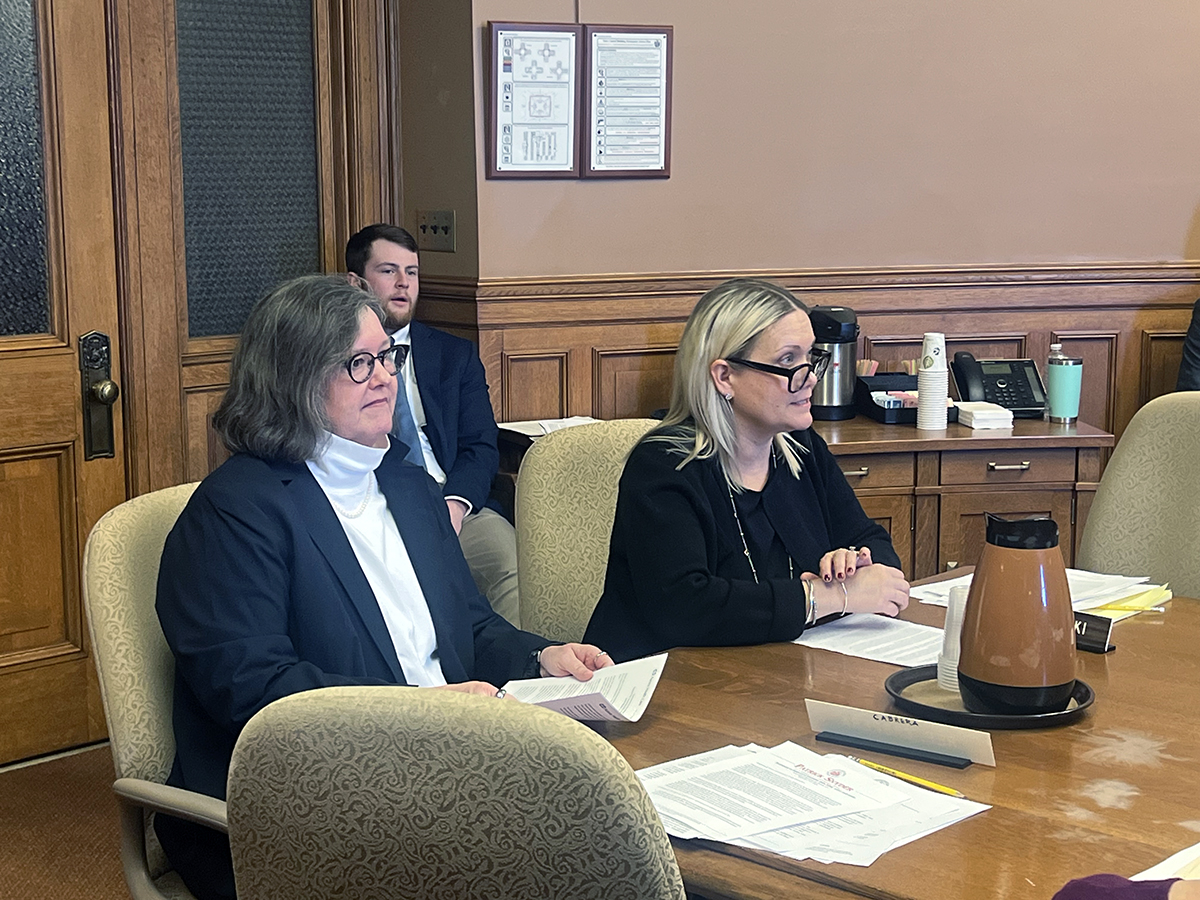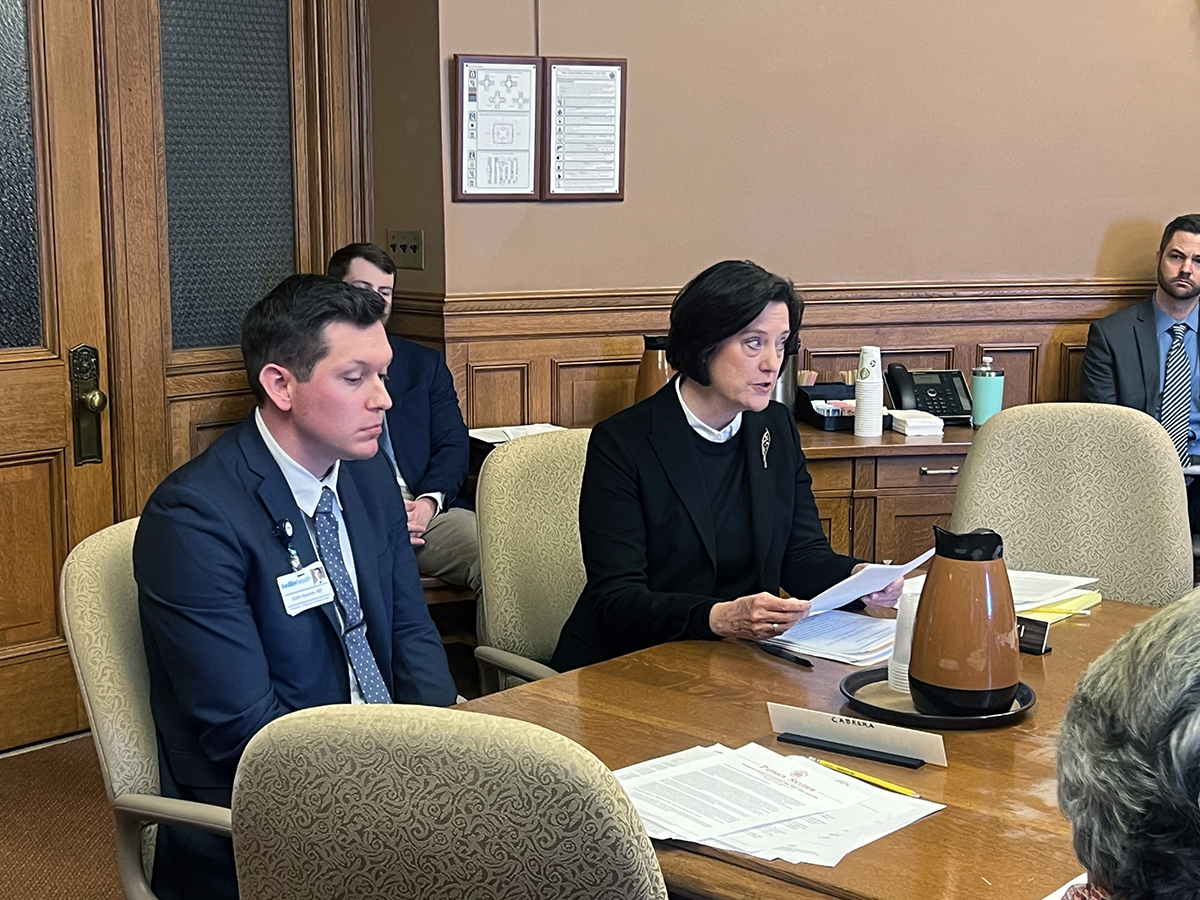The Assembly Committee on Family Law and the Senate Committee on Health held separate public hearings last week on a package of policies focused on addressing delayed discharges from hospitals. The Assembly committee approved the bills the following day.
The three bills include a provision that would recognize an incapacitated patient’s next of kin as a surrogate decision maker for purposes of consenting to the admission to, care and treatment in a nursing home or CBRF. The bills also would allow new nursing home beds to improve access to post-acute care for patients with complex care needs and establish a pilot program for hospital and post-acute care facility partners to test innovative strategies to improve care transitions. The bills include funding for a supplemental payment for hospitals to recognize the avoidable days related to delayed discharges and a new enhanced nursing home rate for certain patients with complex care needs admitted directly from a hospital.
 Sarah Becker and Carrie Killoran
Sarah Becker and Carrie Killoran
Hospital leaders from across the state testified in support of the bills, focusing on the bill that would recognize an incapacitated patient’s next of kin as a surrogate decision maker. Discussing the proposed policy, Carrie Killoran, president of Aurora Health Care’s greater Milwaukee area and St. Luke’s Medical Center, emphasized, “These discharge delays negatively impact us as an organization, our employees, and very importantly, also our patients and their families.”
Regional Vice President of Acute Operations, Northern Markets for SSM Health Kyle Nondorf said, “This common-sense reform is a benefit to patients, their loved ones, and hospitals as it would help alleviate process-related delays that are outside of anyone’s control. We do not want to see patients unable to access the best setting for care because of lengthy and unnecessary court procedures.”
Director of Social Services in Wisconsin for Aurora Health Care Sarah Becker provided important context, noting, “Some of our patients cross the Wisconsin/Illinois border to receive their acute care in our state, but then return to Illinois if they need post-acute care. When these patients become incapacitated and require nursing home placement, they are at an advantage because Illinois allows for family members in a hierarchy to admit them to a facility even in the absence of having a Power of Attorney for Health Care document. Patients in this circumstance can move to the appropriate level of care as soon as a skilled nursing facility is identified that can meet their needs. This is the standard in the vast majority of other states as well.”
Director of Case Management and Post-Acute Strategy Ascension Wisconsin Jamie Gill, RN, testified, “The proposed legislation would ensure that the most vulnerable person in these scenarios, the incapacitated patient, is discharged and gets access to the same quality of care that other patients who have capacity to consent to post-acute care themselves or patients who have an appointed healthcare power of attorney are able to receive.”
 Dr. Colin Bowman and WHA Policy Counsel Laura Leitch
Dr. Colin Bowman and WHA Policy Counsel Laura Leitch
Collin Bowman, MD, a palliative care physician for Bellin Health in Green Bay, shared his previous experience in Indiana, a state that recognizes a family member's role in the care of an incapacitated loved one, and compared it to his current experience in Wisconsin. He concluded, "This legislation would fix those [Wisconsin's] limitations and is squarely aimed at reducing suffering for patients and families. It eases the mostly unnecessary process of seeking guardianship by allowing the patients' families, the ones who know the patient’s goals and values the best, to be their voice. It improves the quality of care we give."
The Assembly is expected to debate and vote on the package of bills on Feb. 22, 2024, the final day of the session for the Assembly. The Senate committee is expected to vote on the bills soon.